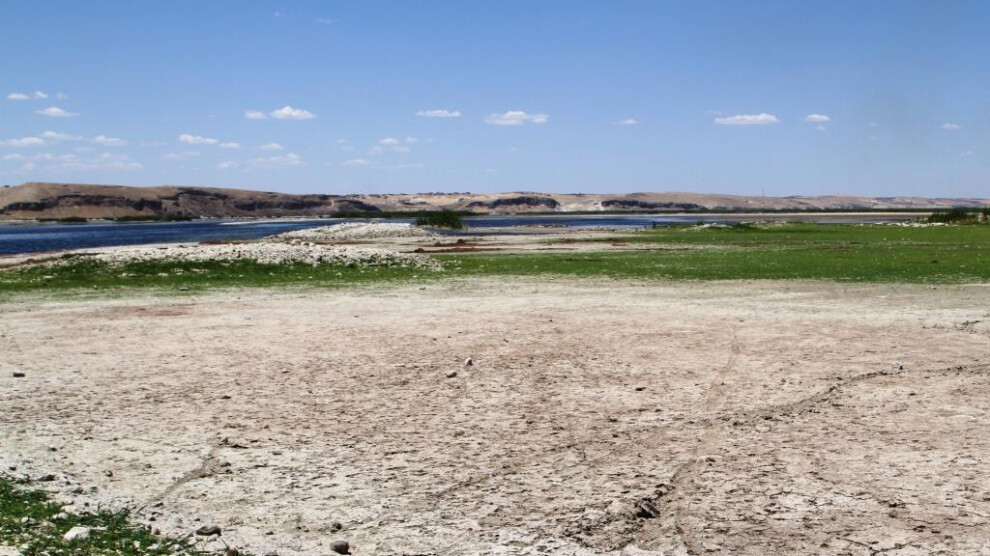The occupying Turkish state continues to carry out hostile policies against the peoples of Northern and Eastern Syria. One of these policies is to use water as a weapon. Turkey reduces the dam water and this poses a threat to the agricultural areas around the Euphrates River.
The occupying Turkish state is using the Euphrates water as a weapon against Northern and Eastern Syria. This threats the environment but also reflected in the production of agricultural areas.
With these policies, the Turkish state violates international standards, such as the 1987 agreement with the Syrian government, which stipulates the release of 500 cubic meters per second.
Talking to ANHA about this, Euphrates Dam Engineer Ehmed El-Oso pointed out that the Turkish state never released more than 150 cubic meters, and said that this situation caused the agricultural land to become arid and the electricity provided from the dam to decrease. Stating that the water remained 300 meters away from the Euphrates Dam, Ehmed added that the cultivated lands are under serious threat.
Ebdulxaliq Ehmed, co-chair of Tabqa Agriculture Directorate, said that Tabqa is an agricultural region and that the agricultural projects there are all depending on the Euphrates River. “These areas, which stretch from Cirni region to Raqqa and Deir Ezzor, with a surface of 186 thousand decares, are as tall as the Euphrates dam.”
Farmer Casim Mihemed, who lives in the village of El-Sefsaf, said: “Because of the hostility of the Turkish state, we cannot irrigate our lands. This also has a negative effect on our production.”
Farmer Elî Xelîfê said: "Wheat is currently in the process of ripening, and if the situation continues, we won’t be able to get any harvest."














